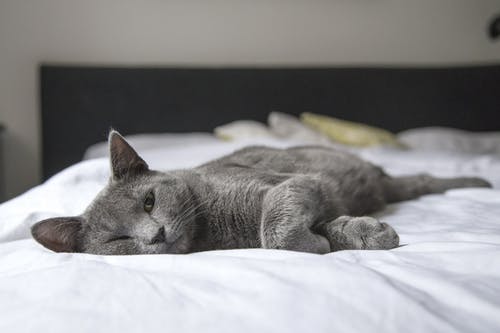Like people, pets grow older, and their health needs become more unique. Caring for a mature pet can be a unique and rewarding experience. But it’s essential that we understand these changes and know what to expect as our pets age. Owners who take the time to understand the health risks facing their aging pets are better equipped to keep their companions healthy and comfortable.
This welcome guide presents a variety of common health issues in older pets. We will also explore important topics like senior pet care, the significance of vaccines, and the purpose of geriatric vet medicine.
Understanding Health Issues in Older Pets
As pets advance in years, they become more susceptible to certain health conditions. You, as a pet owner, play a vital role in detecting any problems early through regular vet visits and keen observation of any behavioral changes.
- Arthritis: Arthritis is joint inflammation and can make movement painful for your pet. You may notice that your pet isn’t as eager to run and jump as they used to, or they may have trouble climbing stairs. Activities that were once easy for them might now be difficult. The pet doctor may recommend a special diet, regularly controlled exercise, and sometimes, medications to ease the discomfort and inflammation.
- Dental Disease: Dental disease is common in older pets. Neglected teeth can lead to the buildup of plaque that can cause gum diseases and tooth loss. Regular tooth brushing (as recommended by the vet) and dental check-ups can prevent this.
- Heart Disease: Pets can develop heart diseases, just like humans. You may notice that your pet tires easily, coughs often, or seems to have trouble breathing. If diagnosed early via regular vet checkups, heart disease can be managed with proper pet medicine and diet changes, thus ensuring your pet’s prolonged survival.
- Cancer: Aging increases the risk of pet cancer. Various types of cancer can affect pets, and their management depends on the type of cancer and its progression. Regular vet visits can aid in early detection and timely treatment.
- Diabetes: Diabetes is a disease that affects the amount of sugar in a pet’s blood. Older pets, especially cats, are at risk. Symptoms include increased thirst and urination. It’s manageable through dietary changes and medication.
Tapping into the Benefits of Veterinary Care
Consistent vet care plays a pivotal role in identifying and managing health issues that arise as pets age. The vet’s wide-ranging expertise includes vaccinations to general health checks; these professional creatures provide numerous services targeting pet health.
Neutering of dogs and cats is one service provided by veterinary care professionals. Neutering helps to control the pet population and can also prevent diseases such as cancers of the reproductive system. Another important veterinary service is vaccination, which provides a shield against numerous diseases that might compromise your pet’s health. These professionals also specialize in geriatric veterinary medicine. As pets age, they may develop conditions and diseases related to aging – these vets are perfectly placed to help manage and treat such conditions.
Delving Deeper into Pet Geriatrics
Geriatric pet care aims to improve the quality of life of older pets by focusing on health, longevity, and the management of chronic disease.
Consider, for instance, geriatric cat care in Poway, CA. These pet care providers extensively cater to the health needs of your furry friends as they age. This encompasses dietary adjustments, tweaking physical activity plans, understanding changes in behavior, enhancing social interaction, and maintaining mental health, among others. Geriatric care aims to extend your beloved pet’s lifespan and boost their quality of life.
More on Pet Vaccinations
In order to preserve your pet’s health and longevity, a proper immunization schedule is paramount.
The common vaccines for cats and dogs play a preventive role, shielding your furry friends from several diseases. These include vaccines for rabies, distemper, leptospirosis for dogs, and panleukopenia (feline distemper) for cats. Regular vaccinations are essential in ensuring that your pet leads a healthy, disease-free life.
Guidelines for Senior Pet Health Care
We all want to ensure our pets live comfortably in their twilight years. A few straightforward modifications in their usual care routine can go a long way in ensuring the health of senior pets.
- Regular Vet Visits: Regular visits to the vet are even more critical as your pet ages. These check-ups typically involve blood work, urine tests, and physical exams to detect any potential issues early.
- Diet and Exercise: An older pet’s diet and exercise need to be adjusted to their age and health. A diet catered to their needs coupled with an exercise regimen suitable to their physical abilities can enhance their health and longevity.
- Mental Stimulation: Mental stimulation is as important as physical health. Engaging your pet with mentally stimulating toys and activities can help keep their minds sharp.
- Preventive Care: Preventive care includes activities like vaccination, regular dental cleanings, and pest prevention. It also comprises keeping an eye on any changes in behavior, appetite, or weight.
To End
In conclusion, as your pet steps into its golden years, it’s your understanding of common potential health issues along with preventive measures that determine their wellbeing. With regular vet visits, vaccinations, a focus on diet and exercise, and detailed geriatric pet care, you can ensure your pet remains healthy and enjoys a good quality of life.
Although this can feel daunting, the effort invested in understanding and providing for an elder pet’s needs is well worth it when it leads to their improved health and happiness.



